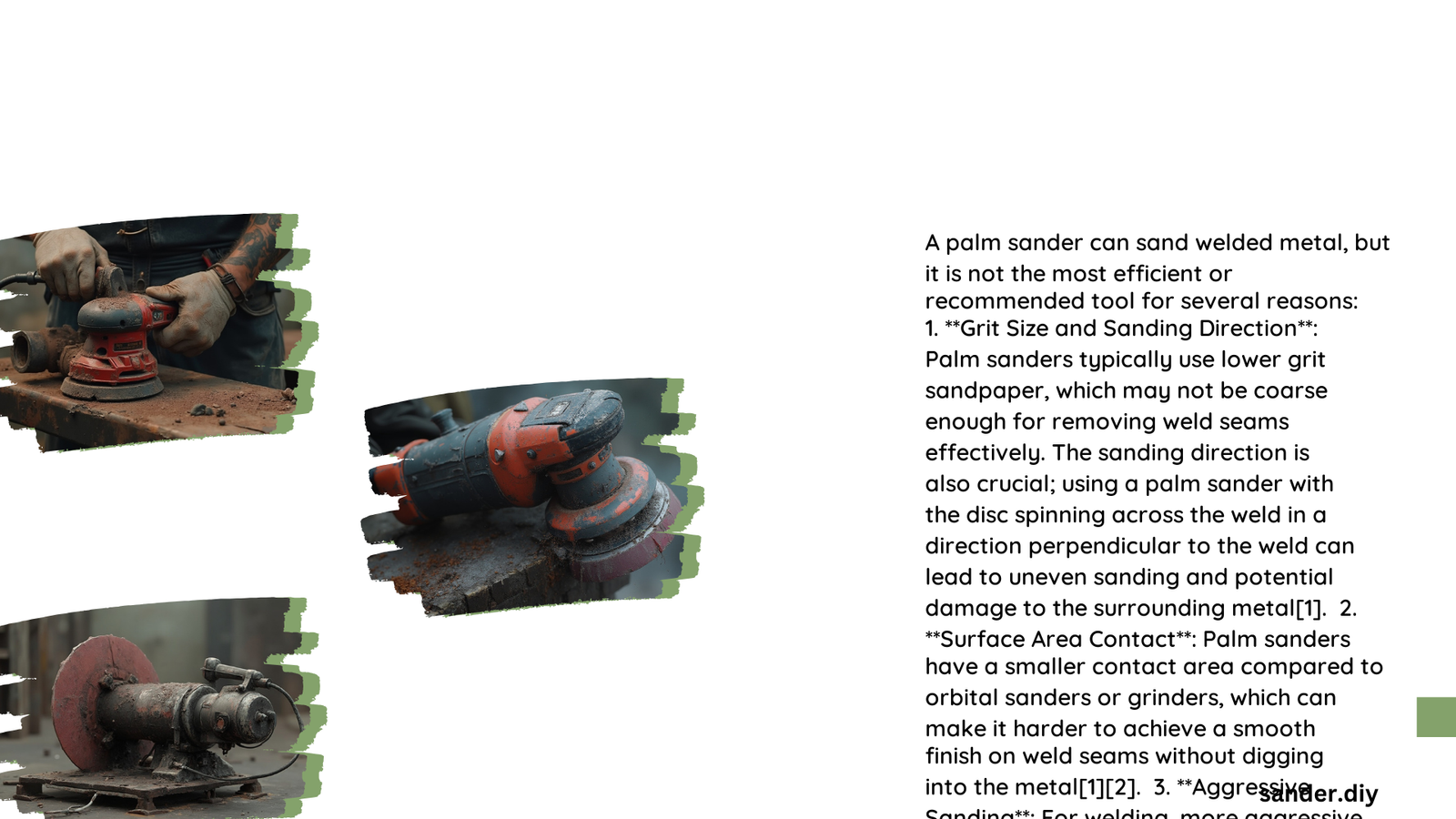Palm sanders can effectively sand welded metal surfaces when used with the right techniques, grit selection, and understanding of metal characteristics. Metalworkers and DIY enthusiasts can achieve smooth, professional finishes by following specific sanding strategies that minimize surface damage while preparing welded joints for further processing or aesthetic improvements.
What Makes a Palm Sander Suitable for Welded Metal?
Can Palm Sanders Handle Different Metal Types?
Palm sanders are versatile tools capable of working with various metal surfaces, including:
| Metal Type | Sanding Effectiveness | Recommended Grit Range |
|---|---|---|
| Steel | High | 36-220 |
| Aluminum | Moderate | 80-220 |
| Brass | Good | 60-180 |
What Techniques Ensure Successful Metal Sanding?
Proper Grit Progression
- Start with coarse grits (36-60) for initial weld bead removal
- Transition to medium grits (80-120) for smoothing
- Finish with fine grits (180-220) for polishing
Critical Sanding Considerations
- Maintain consistent, light pressure
- Move sander at 15-30 degree angles
- Use smooth, controlled motions
- Avoid aggressive sanding techniques
How Powerful Are Palm Sanders for Metal Work?
Palm sanders offer moderate power suitable for:
– Small to medium-sized welding projects
– Precision surface preparation
– Finishing and smoothing weld seams
What Equipment Performs Best?
Recommended Palm Sander Specifications:
– RPM Range: 4,500-20,000
– Power Source: Pneumatic or Electric
– Disc Size: 4-inch preferred
– Weight: Lightweight (under 3 lbs)
What Limitations Exist?
Potential Challenges:
– Less effective on extremely thick weld beads
– Limited material removal compared to angle grinders
– Requires multiple passes for significant surface modifications
How to Maximize Palm Sander Performance?
Expert Tips:
– Use dust extraction systems
– Wear appropriate safety gear
– Select high-quality abrasive discs
– Maintain consistent sanding pressure
– Clean metal surface before sanding
Cost and Time Efficiency Analysis
| Factor | Palm Sander | Alternative Tools |
|---|---|---|
| Initial Cost | Low | High |
| Time per Project | Moderate | Fast |
| Surface Finish Quality | Excellent | Variable |
Safety Precautions
- Always wear safety glasses
- Use respiratory protection
- Work in well-ventilated areas
- Secure workpiece properly
- Inspect sander and abrasives before use
Professional Recommendations

Professional metalworkers suggest:
– Practice on scrap metal first
– Invest in quality abrasives
– Understand metal-specific sanding requirements
– Regularly maintain sanding equipment
Final Insights
While palm sanders can effectively sand welded metal, success depends on technique, equipment, and understanding material characteristics. Proper preparation, tool selection, and methodical approach ensure optimal results.
